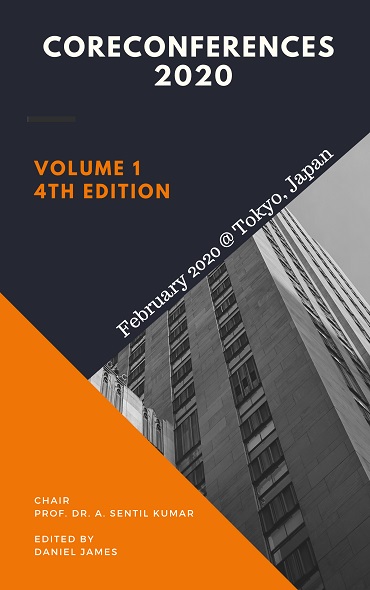- Publication Meta:Value
- Short Title:CC Batch A 2020
- Publisher:ASDF, India
- ISBN 13:978-93-88122-10-8
- ISBN 10:93-88122-10-0
- Language:English
- Type:Hard Bound - Printed Book
- Copyrights:CC Batch A Organizers/DCRC, London, UK
- Editor-in-Chief:Dr A Senthilkumar
- Conference Dates:03 - 04, February 2020
- Venue Country:Tokyo, Japan
- Submitted Papers:259
- Acceptance Rate:8.77%
- Website:www.coreconferences.com
Welcome to ASDF Electronic Digital Library!
CoreConferences 2020
CoreConferences 2020
International Conference on Global Peace 2020
Paper 004
Risk Reduction and Terrorist Inmate Classification Scheme in Indonesian Prisons
Maya Trisdamayanti1, Muhamad Syauqillah2, Jerry Marcellinus Logahan3
1,2,3Terrorism Studies, School of Strategic and Global Studies, University of Indonesia, Indonesia
,Abstract
The 21st century's radicalism and terrorism phenomenon is critical issues for security of the state and the world's security. World countries have been implementing various soft approach methods and techniques, which adjusted to domestic wisdom of the respective country, to tackle such issues. In Indonesia, the so-called de-radicalization program has been designated for its terrorist prisoners who serve their sentence in prisons. Numerous studies analyse its advantages and weaknesses, and some have identified its failure. Purpose of this study is to analyse the failure of the Indonesian de-radicalization program and identify its causes. This study uses qualitative method, which supported by data that collected through literature review, observations, and interview sessions. Among some of the causes, previous studies show that lack of post release (after-care) program, in addition to minimum monitoring and evaluation system, have an impact on recidivism. That said, former terrorist inmates have been identified returning violence and involve in terrorism. Further in this study, it develops risk reduction theory that requires behavioural change of terrorist inmate, in order to reduce the risk of recidivism. An inmate classification scheme is used to measure risk level of each inmate, and intended to identify prison assignment, the required level of supervision and control, as well as identifying appropriate de-radicalization program for each terrorist inmate.
Keywords
Author's Profile
Author profile can be generated and linked through our partners World Book of Researchers. To include your profile online Click Here. After it is approved, please email to edlib @ asdf.res.in to create a link with all the papers.
e-AID
2020.CoreConferences.004
Cite this Article as Follows
Maya Trisdamayanti, Muhamad Syauqillah, Jerry Marcellinus Logahan. Risk Reduction and Terrorist Inmate Classification Scheme in Indonesian Prisons. International Conference on Global Peace (2020): 02. Print.
© 2010 - by EDLIB . All rights reserved.

